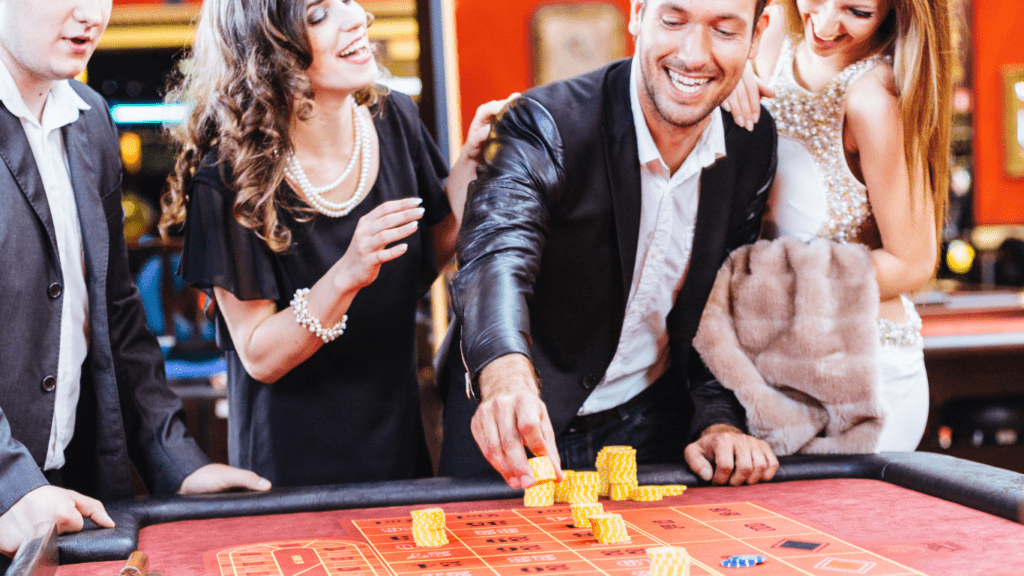Gambling can be an exciting way to unwind, but it’s easy to lose track of how much time or money you’re spending. I’ve found that what starts as harmless fun can sometimes creep into unhealthy territory without even realizing it. That’s why taking a moment to reflect on your habits is so important.
Responsible gambling isn’t just about setting limits—it’s about understanding your relationship with it. Are you in control, or is it starting to control you? By asking the right questions and being honest with yourself, you can ensure that gambling stays a form of entertainment, not a source of stress.
Understanding Responsible Gambling
Responsible gambling means maintaining control over gambling activities while prioritizing personal well-being. It ensures that gaming remains an enjoyable and optional form of entertainment without interfering with financial stability, relationships, or mental health.
I focus on several key principles to practice responsible gambling:
- Budgeting for Gambling: Set a specific amount of money for gambling and stick to it, understanding that these funds are meant for entertainment and not for making a profit.
- Time Management: Allocate a fixed amount of time for gambling and avoid exceeding these limits to ensure balance with other activities.
- Knowledge of Probabilities: Recognize that games are based on chance, and outcomes can’t be controlled or predicted, which helps curb unrealistic expectations.
- Avoiding Emotional Gambling: Play with a clear mind, and avoid gambling when feeling stressed, anxious, or under pressure.
For me, being self-aware is critical. Monitoring warning signs, such as chasing losses, gambling with funds for essentials, or neglecting responsibilities, can help detect when habits begin shifting away from responsible practices. By staying informed and disciplined, gambling can remain a safe and positive experience.
The Importance Of Self-Assessment

Self-assessment plays a crucial role in maintaining responsible gambling habits. It helps identify behaviors and patterns that may risk becoming problematic, ensuring gambling remains a controlled and enjoyable activity.
Identifying Personal Gambling Habits
Understanding my gambling habits lays the foundation for responsible gambling. Keeping track of how frequently I gamble, how much money I allocate, and how often I surpass my set limits is essential. For example, if I notice that I regularly extend my gambling sessions or spend beyond my predefined budget, it signals a need for adjustment. Using tools like gambling diaries or spending trackers can provide insight into patterns that might otherwise go unnoticed.
Recognizing Signs Of Problem Gambling
Acknowledging the signs of escalating gambling issues protects my wellbeing. Behaviors such as regularly chasing losses, feeling anxious or guilty after gambling, or neglecting commitments suggest that gambling may be causing harm. For instance, if I start borrowing money specifically for gambling or avoiding social interactions, these are indicators that self-assessment can uncover. Regularly evaluating my emotional and financial responses to gambling ensures I can address concerning trends early.
Tools And Resources For Self-Assessment
Self-assessment tools can help evaluate gambling habits with accuracy. By using structured methods, I can monitor behaviors and identify potential issues early.
Questionnaires And Self-Evaluation Checklists
Questionnaires and checklists offer a structured way to reflect on gambling patterns. Tools like the Problem Gambling Severity Index (PGSI) or DSM-5 Checklist assess gambling-related behaviors and emotions. These tools ask questions about:
- chasing losses
- gambling frequency
- financial stress
- emotional impact
For example, the PGSI includes prompts like, “Have you felt guilt related to gambling?” Responses can highlight risks and guide decisions about seeking support or making changes.
Free resources from organizations such as GamCare or the National Council on Problem Gambling provide accessible self-evaluation forms. These resources ensure I receive personalized insights into my habits without judgment.
Apps And Online Tools For Tracking
Apps and online tools simplify monitoring gambling behaviors in real-time. Budgeting apps like Gamban or BetBlocker help me set limits on spending and block access to gambling sites if needed. Additionally, gambling-specific trackers like Gamalyze analyze decision-making during gameplay, offering insights into risk patterns.
Many platforms connect users to educational content and support services. For instance, websites like BeGambleAware.org provide interactive tools to log gambling frequency and financial commitments. By using these resources, I can maintain awareness and make informed adjustments to ensure responsible gambling practices.
Strategies For Maintaining Responsible Gambling
Responsible gambling relies on proactive habits that help individuals stay in control of their activities. I use structured approaches to ensure gambling remains enjoyable and aligned with my personal goals.
Setting Limits And Budgets
Establishing clear financial and time boundaries prevents overspending or neglecting other commitments. I allocate a specific gambling budget that doesn’t interfere with essential expenses like rent or savings. Tracking each session’s spending helps me remain within set limits. Time limits are equally important—I decide in advance how long to gamble and stick to it, avoiding extended sessions that could lead to impulsive decisions.
Practicing Mindful Gambling
Staying present and intentional during gambling sessions promotes healthier habits. I focus on the entertainment value, recognizing that losses are part of the experience rather than expecting guaranteed wins. I avoid gambling when stressed, upset, or overly excited, as these emotions cloud judgment. Taking regular breaks helps me stay attentive, reassess my limits, and ensure I maintain control throughout each session.



 Jake Luna is a passionate content creator and sports analytics enthusiast, dedicated to bringing insightful and engaging content to readers at JackpotRollZone. With a deep understanding of the latest trends in sports and technology, Jake ensures every piece resonates with both casual fans and seasoned bettors. Explore more expert insights and stay ahead in the game at JackpotRollZone.
Jake Luna is a passionate content creator and sports analytics enthusiast, dedicated to bringing insightful and engaging content to readers at JackpotRollZone. With a deep understanding of the latest trends in sports and technology, Jake ensures every piece resonates with both casual fans and seasoned bettors. Explore more expert insights and stay ahead in the game at JackpotRollZone.
